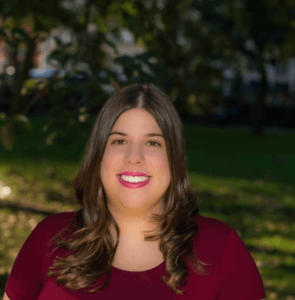This week we are talking about managing anxiety and our topic is living in the what if. Anxiety is generally worry about the future. It comes from fear that things will go poorly and we will have to deal with more stress and negative emotions. The problem is that it’s based on what if thinking. We are not yet in the future and don’t know what will come, but are reacting based on the what if scenarios. We are worrying about things like
“What if I say something stupid and embarrass myself?”
“What if I don’t get the job?”
“What if they get mad at me?”
Feeling anxious about something we don’t know will happen is not effective.
It doesn’t change what will be, it only creates more stress in the present moment. That is why it is important to learn how to get away from living in the what if. By no longer living in the what if, you can reduce anxiety and find more peace and calm. Take a minute and think about how much your currently live in what if thinking.
Mindfulness and living in the what if
Living in the what if leads to anxiety about the unknown and what if the outcome is bad. It keeps you future focused Therefore, a key way to get out of living in the what if is to be more present focused. You can do this by practicing mindfulness. Mindfulness is a preemptive way to not get stuck living in the what if as it’s all about living in the present moment.
The more you practice being mindful on a regular basis, the more easily you will fall into staying present rather than falling into the what if. It’s about building that mindfulness muscle so that you are automatically mindful rather than working on shifting into the present. The more mindful you are in general, the less susceptible you will be to what if thoughts.
How To Practice Mindfulness
Meditation and deep breathing are a great ways to practice mindfulness. However, there are many other ways to practice as well. You can take any activity and do it mindfully. Keep your attention on your 5 senses; focus on what you can see, taste, touch, and smell in whatever you are doing. To start building that mindfulness muscle, find 10 minutes a day to practice mindfulness in whatever capacity works for you.
The Importance of Mindfulness living in New York City
The business of New York City leads to more vulnerability in anxiety. There is so much stimulation that it makes it hard to stay focused. There is so much to do and so many opportunities. While it is nice to have that, there is also extra stress that comes along with it. The New York City environment is more susceptible to comparisons and self-reflection that can take a negative turn. All of this leads to more opportunities to live in the what if, worrying about how you compare to others and if you are making the most of your opportunities. This is where practicing mindfulness becomes even more important. When you work on building that mindfulness muscle, it can provide you the quiet respite you need from the busy city life. It accounts for the vulnerability that living in New York City can bring.
Mindfulness is just one way to preemptively lessen what if thinking. Now let’s talk about the steps to take when you find yourself living in the what if.
How to stop living in the what if
Stay in the present moment.
Anxiety from what if thinking is all future focus. Therefore, you can counter it by staying in the present. When you find yourself living in the what if, shift your focus to the current moment. Ask yourself what is going on right now, rather than thinking about a potential future. Think about what you can do in this moment, not stay stuck in planning for a future moment.
Distract from rumination.
Part of what makes the what if thinking so anxiety provoking is that we obsess over these what ifs. We keep ourselves focused on the what if fears, falling completely into the anxiety. That is why it is important to stop the rumination cycle. When you find yourself stuck in rumination, distract yourself. Find something else to do to occupy your time and thoughts. Things like reading a book, watching t.v., doing a puzzle, calling a friend, etc.
Stop avoiding.
Oftentimes, when we get caught in the anxiety of what ifs, it keeps us from acting and moving forward. We become so afraid of these what ifs that we avoid handling the situation. This leads to dragging out and increasing the anxiety. Rather than continue to worry, put yourself in the situation to get closure. If you are worried about how a friend will react to you needing to cancel plans, go talk to them. If you are worried about doing a good job on your midterm paper, sit down and start writing it. We cannot always handle things right away, in those cases, distracting is the best tool to use. However, there are many times when we can take care of it. In those cases, it’s important not to avoid.
Build stress management tools.
The more you trust in your resiliency, the less scary what ifs are. If you feel confident that you can handle whatever comes your way, there is less anxiety about what the future will bring. Stress management tools are effective ways to handle stress and anxiety. Find what works for you so that you know what you can do when needed. For example, things like deep breathing, self-soothing, and keeping a positive mindset. Stress management is a whole topic in and of itself. It’s something I talk about in many of my blogs. If it is something you need more support in, make sure to regularly check in for tips related to stress management.
Stay on top of self-care.
When we get stuck in what if anxiety, our self-care can suffer. This makes us more vulnerable to anxiety and becomes a vicious cycle. When you find yourself living in what if anxiety, take a step back and check in with your self-care. Take care of what is lacking. Self care checklist: eating, sleeping, medications, relationships, relaxation, and self-compassion.
Think about how you can stop living in the what if as a way to regulate anxiety. Take some now today to think about how you will start using the above tips.
“One cannot change the past, but one can ruin the present by worrying about the future.”

Alyssa Mairanz, LMHC, DBTC
Alyssa Mairanz provides counseling and therapy services for life transitions, relationship issues, self esteem, depression, anxiety, and DBT and Psychodynamic therapy in a NYC group practice in the Flatiron District near Madison Square Park. She also serves the Village, Chelsea, Union Square, the Financial District and the surrounding areas.
Empower Your Mind Therapy’s mission is to helps our clients build the life they want and find more happiness and satisfaction.



